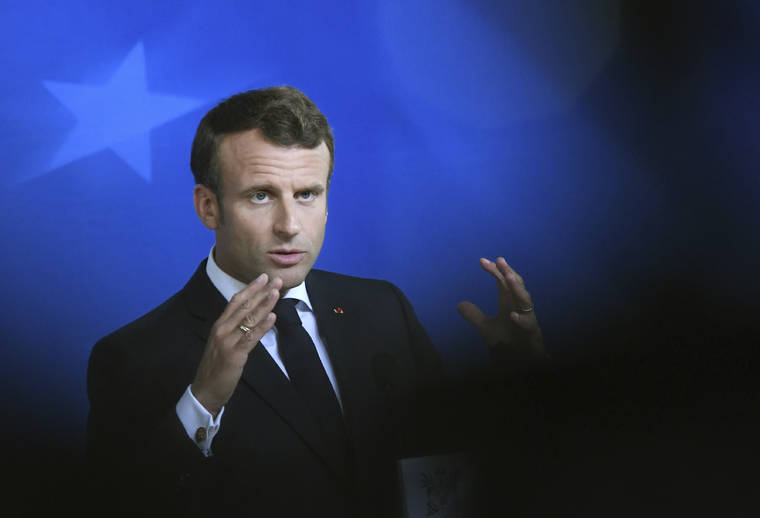BRUSSELS — European leaders are being guarded in their responses to the deepening tensions between the United States and Iran, urging both sides to step back from confrontation.
Influential European countries have for months been steering a delicate path between Washington and Tehran, ever since President Donald Trump’s administration last year pulled out of a nuclear agreement with Iran that the European Union is keen to keep intact.
That pact ensures Tehran’s nuclear program is restricted to civilian uses in exchange for economic assistance and was signed by Iran, the U.S., Russia, China, France, Germany and Britain. It is at risk of collapse due to U.S. sanctions against Iran, leaving the Europeans diplomatically hamstrung by the antagonism between Washington and Tehran.
European Council President Donald Tusk said Friday the bloc is urging restraint on both sides in the latest flare-up, after Iran shot down a U.S. surveillance drone. He rejected suggestions that the EU should speak more loudly in the dispute.
“The biggest problems in our history (were) always provoked by too active politics, not too passive,” he said at the end of an EU summit in Brussels.
In an indication of the Europeans’ uneasiness, the EU summit did not publish a statement on the topic.
German Chancellor Angel Merkel said European countries are still hoping that there can be a political solution.
“Naturally, we are worried about the situation and we’re counting on diplomatic negotiations for a political solution to a very tense situation,” Merkel said, without elaborating.
French President Emmanuel Macron was equally vague.
“I’m calling on all parties to be reasonable and keep talking,” he said.
Sanam Vakil, an analyst at London’s Chatham House think tank, noted that Germany, Britain and France have recently been distracted by their domestic problems.
The EU’s muted response also reflects the bloc’s deep frustration at the Trump administration and a trans-Atlantic divide on foreign policy, she said, with European leaders reluctant to seize the initiative amid divisiveness in their 28-nation bloc.
“This should be an important moment for (the EU) to weigh in and try to shepherd a process,” Vakil told The Associated Press.
The EU’s top diplomat is in regular contact with Washington and Tehran, Tusk said, and the EU is to chair a meeting of the nations involved in the embattled nuclear deal in Vienna next week.
Moscow also added its voice to the calls for a careful approach.
“The situation in the Persian Gulf is quite tense, and this is a concern for us,” Kremlin spokesman Dmitry Peskov told reporters on Friday. “We are following the situation carefully and calling on all countries involved for restraint.”


